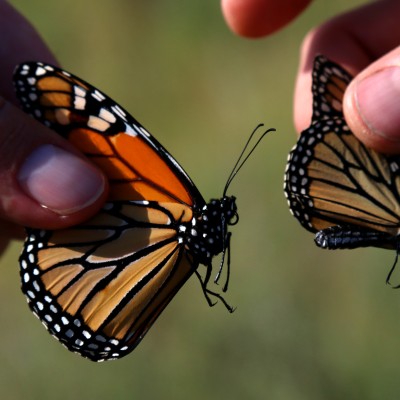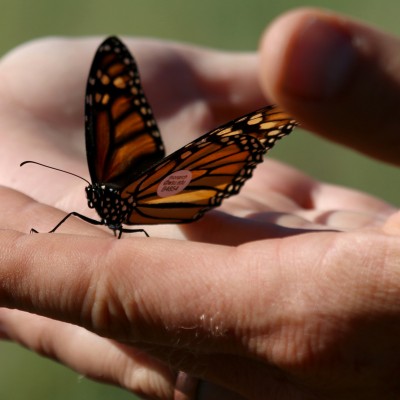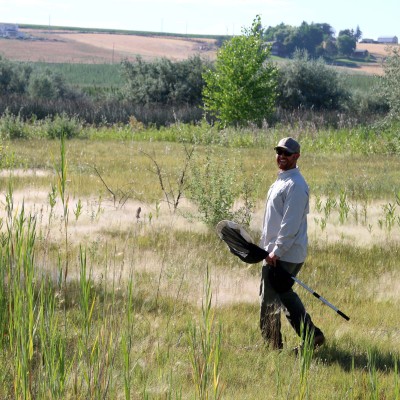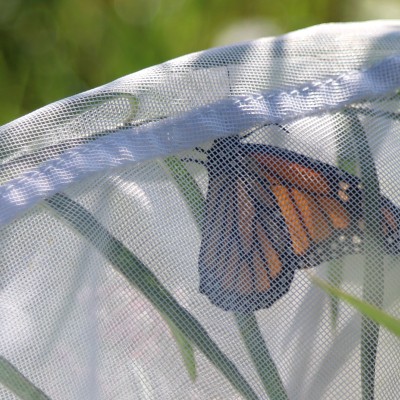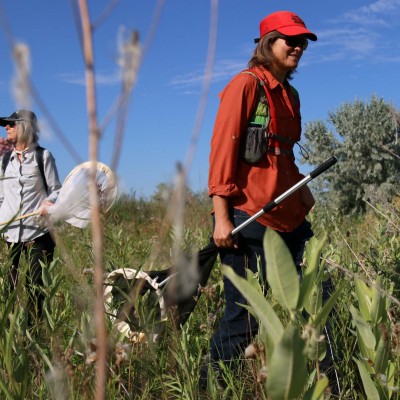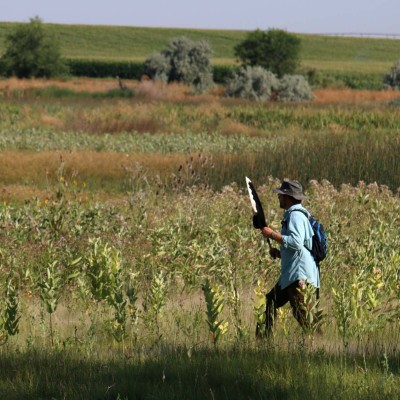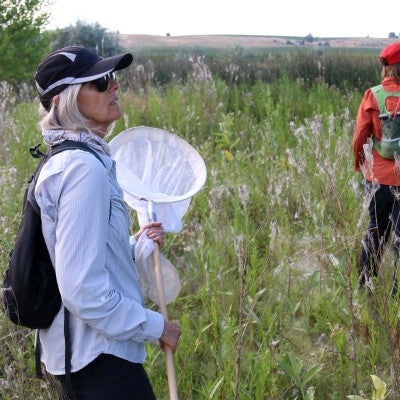As a monarch butterfly launched from a milkweed plant to take flight, Dondi Black of Boise, raced across the wet ground through knee high grass, with an aerial net in hand, in pursuit at Roswell Marsh near Parma on July 28.
The elusive butterfly escaped, but Black’s mother, Frankie Crumb, was lucky enough to catch another butterfly — the two were part of a group of 19 citizen scientists who caught more than 50 monarchs.
“I think it’s awesome people want to help and to be involved in this project. It’s an incredible opportunity for a community college to work with monarchs in their natural habit. All of the problems monarchs are facing are human caused. If people can see them and get a chance to interact with them — the more likely they’ll work to promote conservation,” said Dusty Perkins, an Associate Professor of Biology at College of Western Idaho (CWI).
Monarch butterfly populations have undergone extensive declines since the mid-1990s due to habitat loss and fragmentation in wintering and breeding ranges. While declines in North American monarchs are likely the result of several continent–wide anthropogenic and climate-driven factors, such as habitat loss and fragmentation that reduces populations of milkweeds. Tagging butterflies in places like Roswell Marsh is a first step for scientists to track their movements and learn more about the monarchs. Citizen scientists are helping to map milkweed locations and monarch distributions.
“We can see how many of the monarchs we tagged a month ago are still here, we don’t know how long they live or where they move next,” said Perkins.
CWI graduate Vance McFarland, an intern with the Idaho Fish and Game (IDFG), has been tagging monarchs this summer for the agency across southern Idaho. McFarland kept busy placing tags on the wings of numerous butterflies. The tag is a small sticker, half the size of a penny, and each tag has an identifying number for a butterfly. The tag also includes an email address which allows data to be sent to Dr. David James at Washington State University.
The Monarch Butterfly Conservation Project was one of three grant-funded projects at CWI through the National Science Foundation and the Idaho EPSCoR program.

